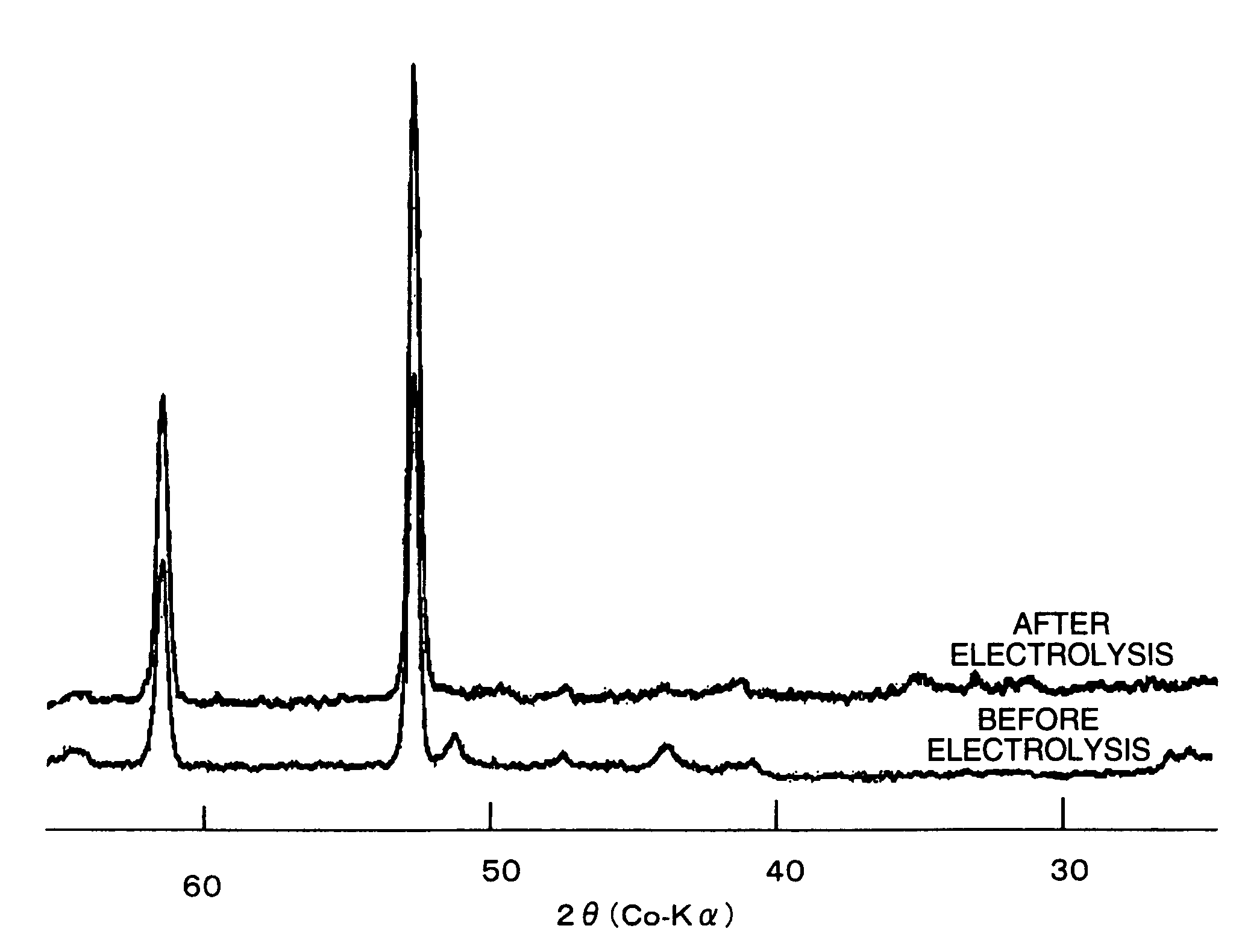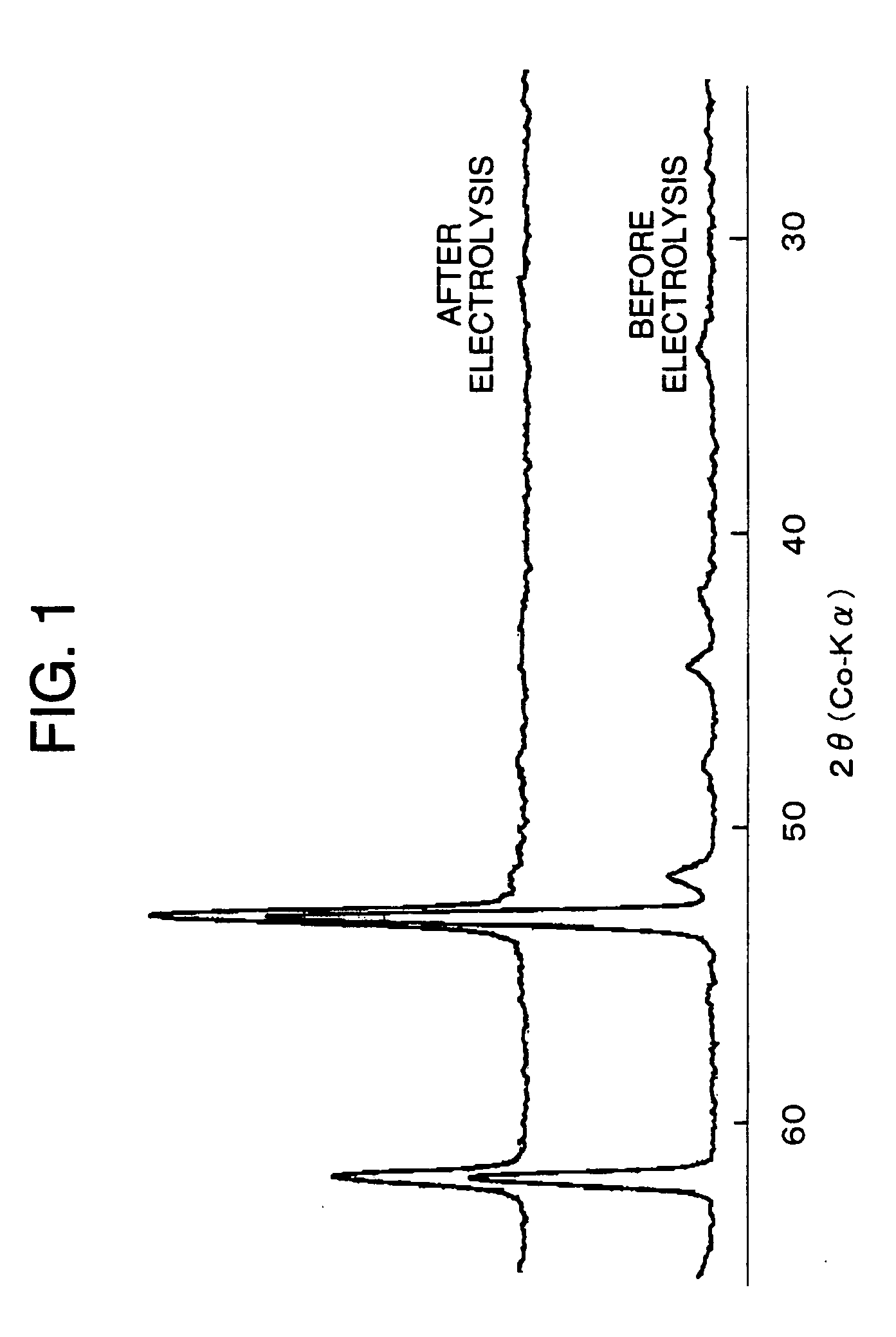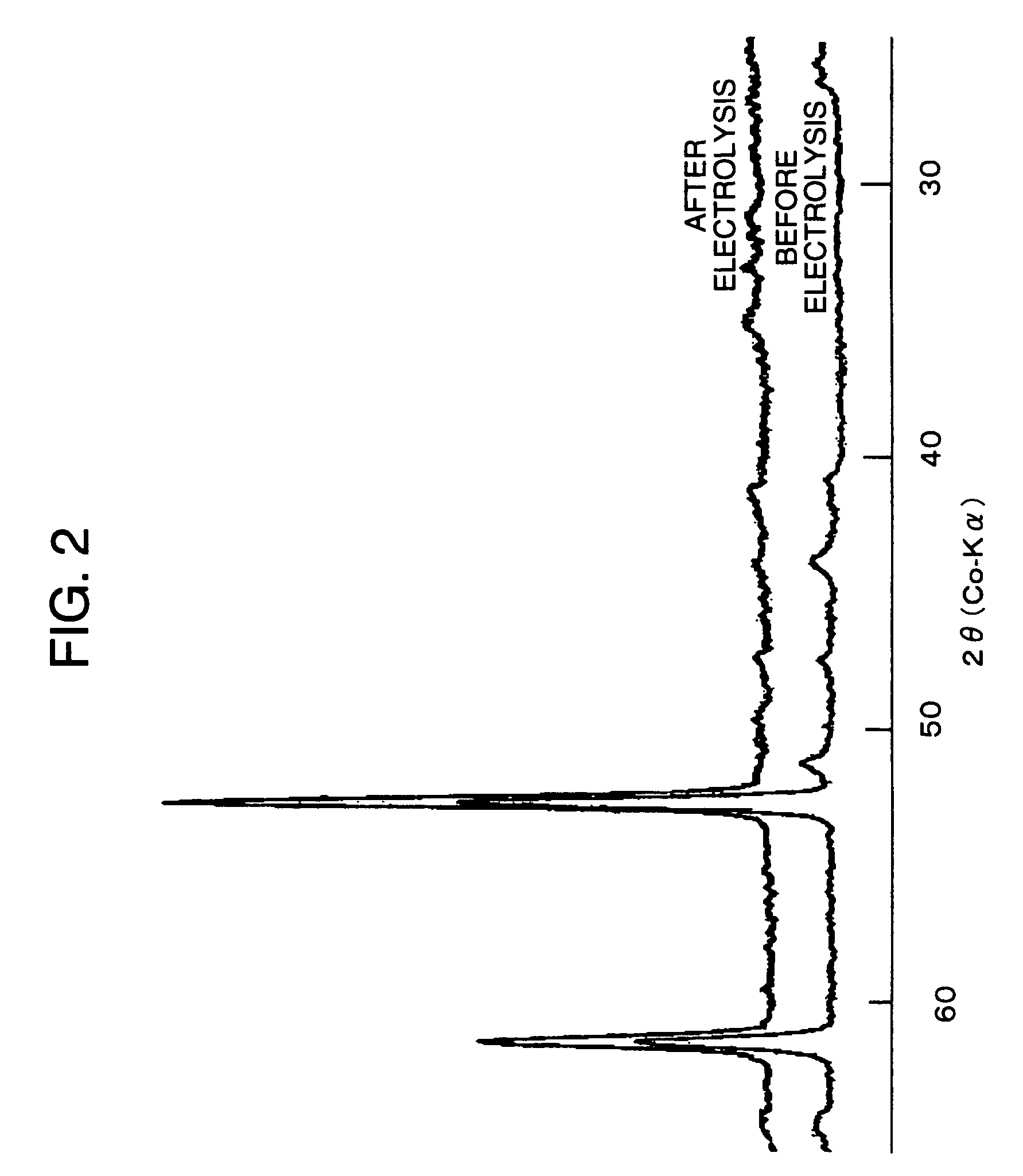Electrode for generation of hydrogen
a technology of electrolysis and electrolysis chamber, which is applied in the direction of electrolysis coating, transportation and packaging, multiple component coating, etc., can solve the problems of short operating life of electrolysis chamber, and achieve the effects of stable quality, excellent durability, and low overvoltag
- Summary
- Abstract
- Description
- Claims
- Application Information
AI Technical Summary
Benefits of technology
Problems solved by technology
Method used
Image
Examples
example 1
[0073]An electrode-shaped nickel expanded base, in which the short way of aperture dimension SW was 3 mm, the long way of aperture dimension LW was 4.5 mm, the feed pitch for expansion processing was 0.7 mm, and the plate thickness was 0.7 mm, was calcined at 400° C. for 3 hours in the air and an oxide coating layer was thereby formed on the surface thereof. Subsequently, blasting with an alumina powder of 100 μm or less in weight average particle size was conducted to provide the base surface with irregularities. Then, the base was subjected to acid treatment in 25 wt % sulfuric acid at 90° C. for 4 hours, and the base surface was provided with finer irregularities.
[0074]In the next place, the nickel base was soaked into a solution in which a surfactant “Nonion N210” (trade mark: a nonionic surfactant manufactured by NOF Corp. (Nippon Yushi K.K.)) was dissolved in water in the ratio of 0.15 g of the surfactant to 200 g of water, and then the base was taken out and dried in the air....
examples 2 to 6
[0084]An electrode-shaped nickel expanded base, in which the short way of aperture dimension SW was 3 mm, the long way of aperture dimension LW was 4.5 mm, the feed pitch for expansion processing was 0.7 mm, and the plate thickness was 0.7 mm, was calcined in the air at 400° C. for 3 hours and an oxide coating layer was thereby formed on the surface thereof. Subsequently, blasting with an alumina powder of 100 μm or less in weight average particle size was conducted to provide the base surface with irregularities. Then, the base was subjected to acid treatment in 25 wt % sulfuric acid at 90° C. for 4 hours, and the base surface was provided with finer irregularities.
[0085]In the next place, the nickel base was soaked into a solution in which a surfactant “Nonion N210” (trade mark: a nonionic surfactant manufactured by NOF Corp. (Nippon Yushi K.K.)) was dissolved in water in the ratio of 0.15 g of the surfactant to 200 g of water, and then the base was taken out and dried in the air....
example 7
[0098]A woven mesh base made of a thin nickel wire of 0.15 mm in diameter with a mesh 50 aperture was calcined at 400° C. for 3 hours in the air to form an oxide coating layer on the surface thereof. Subsequently, blasting with an alumina powder of 100 μm or less in weight average particle size was conducted to provide the base surface with irregularities. Then, the base was subjected to acid treatment in 25 wt % sulfuric acid at 90° C. for 4 hours, and the base surface was provided with finer irregularities.
[0099]In the next place, the nickel base was soaked into a solution in which a surfactant “Nonion N210” (trade mark: a nonionic surfactant manufactured by NOF Corp. (Nippon Yoshi K.K.)) was dissolved in water in the ratio of 0.15 g of the surfactant to 200 g of water, and then the base was taken out and dried in the air.
[0100]Then, oxalic acid dihydrate was added to a ruthenium chloride solution in hydrochloric acid with a metal concentration of 100 g / L in such a way that the am...
PUM
| Property | Measurement | Unit |
|---|---|---|
| overvoltage | aaaaa | aaaaa |
| overvoltages | aaaaa | aaaaa |
| Ra | aaaaa | aaaaa |
Abstract
Description
Claims
Application Information
 Login to View More
Login to View More - R&D
- Intellectual Property
- Life Sciences
- Materials
- Tech Scout
- Unparalleled Data Quality
- Higher Quality Content
- 60% Fewer Hallucinations
Browse by: Latest US Patents, China's latest patents, Technical Efficacy Thesaurus, Application Domain, Technology Topic, Popular Technical Reports.
© 2025 PatSnap. All rights reserved.Legal|Privacy policy|Modern Slavery Act Transparency Statement|Sitemap|About US| Contact US: help@patsnap.com



